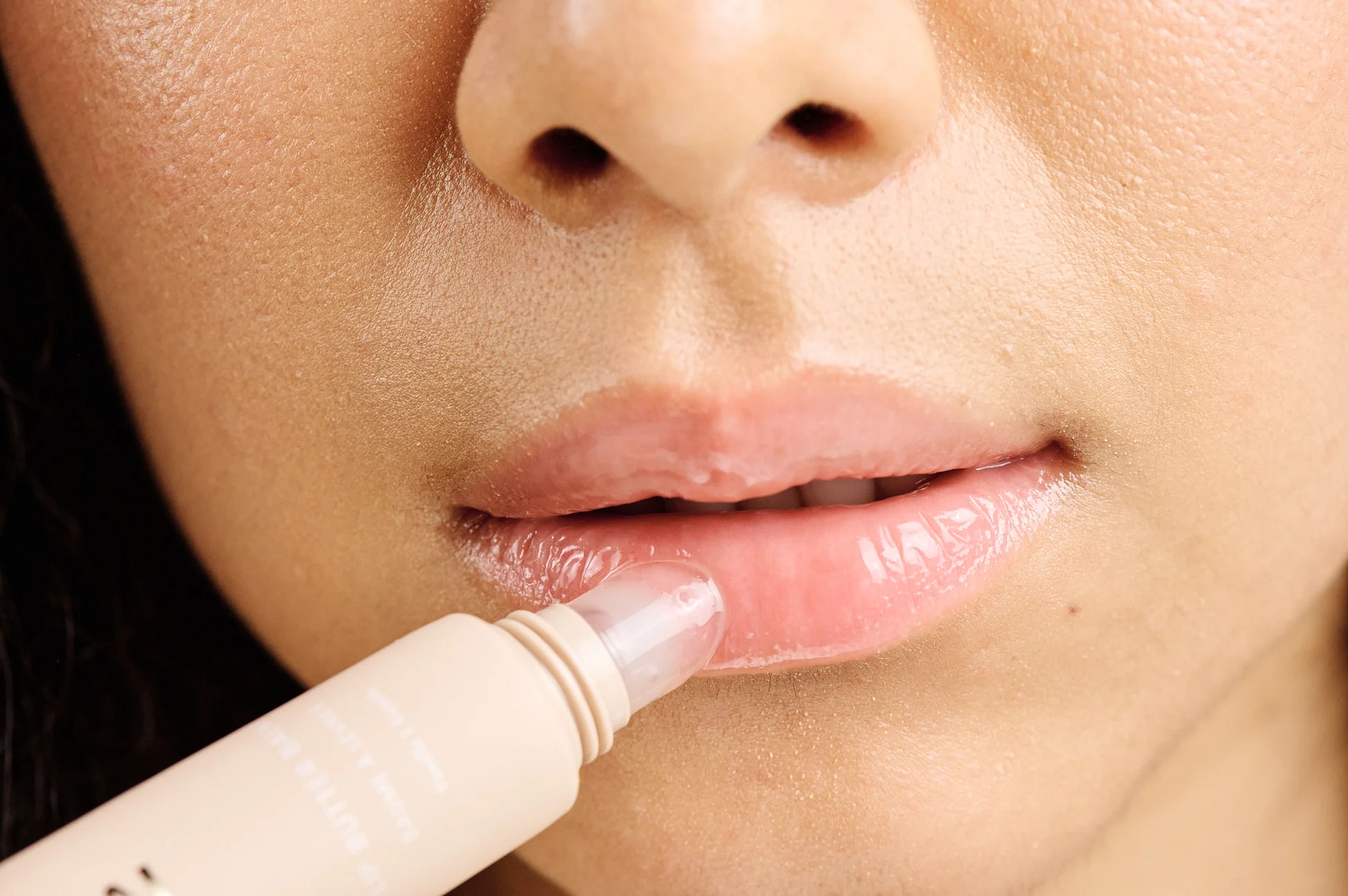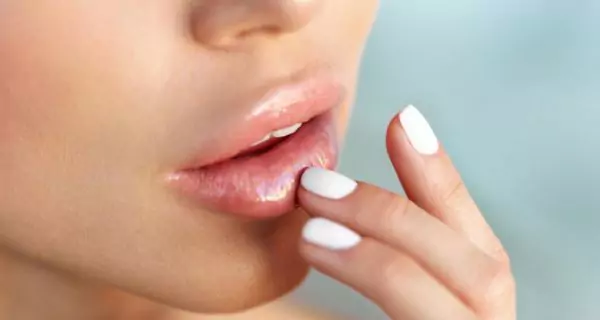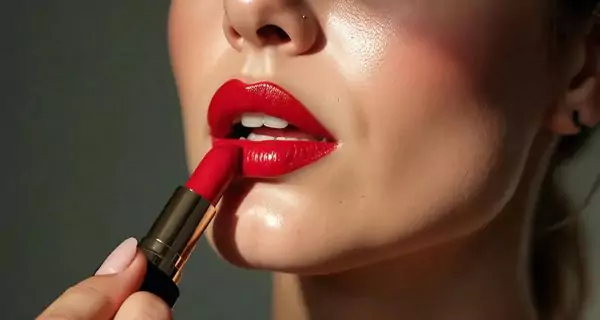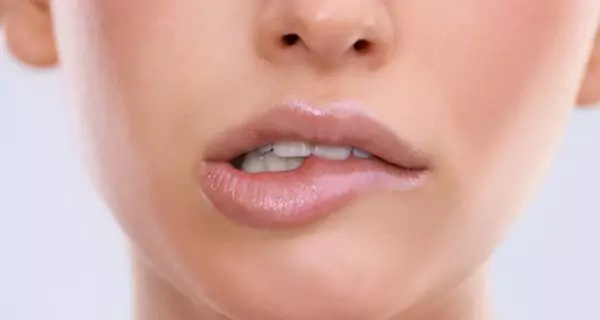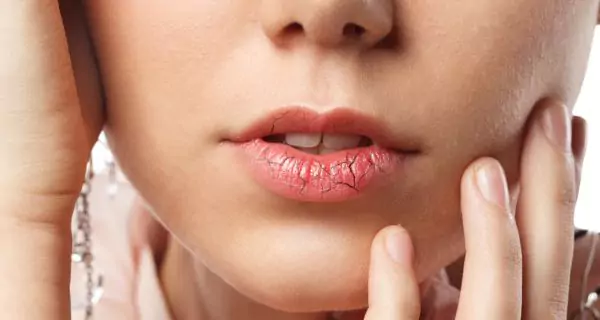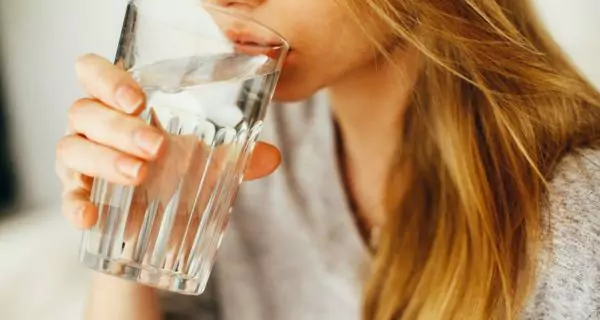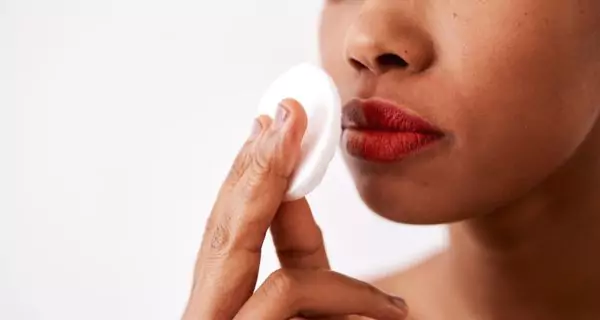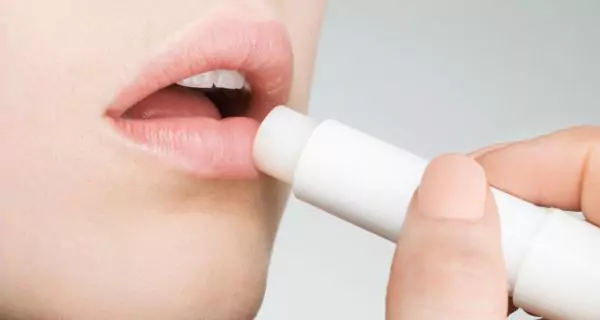Last Updated on: 19th September 2025, 12:29 pm
Yes, lipstick can affect lip care and dental health if it contains harmful ingredients or a dry formula. Choosing safe, moisturizing lipsticks with natural ingredients helps protect the lips, prevents irritation, and supports the health of gums and teeth. Avoid heavy metals, strong fragrances, or sugars for safer lip care.
Lipsticks are an important part of makeup. If you love makeup, you know how much lipstick can enhance your look.
True beauty starts with healthy lips. Good lip care helps your lips stay soft, smooth, and strong, not just for a perfect lipstick finish but also for your overall oral health.
Healthy lips are essential for feeling confident and taking care of your mouth. Let’s explore why lip care matters.
Why does lip care matter for your smile?
Lip care is more than just about beauty. Your lips are a natural barrier that protects the mouth, teeth, and gums. When lips are dry, cracked, or irritated, they can:
- increase the risk of infections
- make dental problems worse
- reduce comfort and confidence
Healthy lips make brushing, eating, and smiling easier. They help keep saliva in the mouth, keeping teeth hydrated and strong. Saliva protects against bacteria, plaque, and bad breath.
What if I have dry lips?
Dry or chapped lips are often a sign of dehydration. If your lips are dry, your mouth is probably dry too. A dry mouth can lead to:
- mouth sores
- gum and tooth infections
- more bacteria and plaque
- bad breath
What are the main functions of the lips?
Lips are more than a part of your look. They work with the tongue and teeth to:
- start swallowing (deglutition) by sealing food in the mouth
- help with chewing and guiding food
- form sounds and words for clear speech
- keep saliva inside the mouth to avoid dryness
- protect teeth and gums from external damage
As you can see, lips have several functions: they protect, support eating and speaking, and keep the mouth healthy. This is why good lip care is essential for both beauty and dental health.
How do lipsticks affect lip care and oral health?
Lipstick is one of the most popular makeup products. It adds color and style, but it also touches your lips all day. Thus, it plays a role in lip care and oral health. Let’s look at what you should know.
What are lipsticks made of?
Lipsticks are usually a mix of waxes, oils, pigments, and emollients. These ingredients give lipstick its shape, texture, color, and comfort. But not all ingredients are the same. Some can be good for your lips, while others may cause problems.
Which lipstick ingredients are good?
Safe and nourishing lipsticks often include:
- Natural moisturizers: contain shea butter, aloe vera, coconut oil, jojoba oil, vitamin E
- Mineral pigments: are softer on lips than synthetic dyes
- Oils: such as castor oil, jojoba oil, or natural plant oils for smooth application
- SPF protection: shields lips from sun damage
- Clean beauty labels: dermatologically tested, non-toxic
These ingredients help keep lips soft, hydrated, and protected.
Which lipstick ingredients are harmful?
Some lipsticks contain ingredients that may harm lips over time, such as:
- Heavy metals (like lead, cadmium) that can be toxic with long exposure.
- Parabens and preservatives: may irritate or cause sensitivity to the soft tissues.
- Synthetic dyes and fragrances: can dry out or inflame lips.
- Excess alcohol: removes natural lip moisture.
These can damage your lips and indirectly affect your teeth and gums.
What are the benefits of using lipstick?
When made with safe ingredients, lipsticks offer several benefits. They:
Boost confidence with a brighter smile
Lipstick can make your smile stand out and help you feel more confident. Normally, when you use lipstick, the contrast of the color makes your teeth look whiter and cleaner.
Protect against dryness if moisturizing
Lipsticks with natural oils, butters, or vitamin E keep lips soft and prevent cracking. Hydrated lips work better as a barrier to protect your mouth.
Provide SPF protection from the sun
Some lipsticks include sun filters. This helps prevent sunburn, premature aging, and reduces the risk of lip cancer caused by UV rays.
Reduce habits like lip-licking or biting
Wearing lipstick can make people more careful with their lips. Avoiding these habits reduces dryness and the spread of bacteria from the hands or saliva.
Encourage better oral hygiene for a cleaner smile
Many people brush their teeth more often or avoid staining drinks like coffee and red wine while wearing lipstick. This indirectly improves dental care and keeps teeth looking cleaner.
What are the risks of lipstick use?
Not all lipsticks are safe, especially those with harsh chemicals or poor-quality ingredients. Possible risks include:
Dry and cracked lips
Matte or long-lasting lipsticks often remove natural moisture. Cracks make lips painful and allow bacteria to enter, increasing the risk of infections.
- Gum irritation
Preservatives, dyes, or fragrance chemicals can spread from the lips to the gums. This may cause redness, swelling, or sensitivity in the mouth.
Sticky formulas or lipsticks with sweeteners and glitter can leave residue. This residue attracts bacteria, leading to plaque and sometimes bad breath.
- Teeth stains
Dark or highly pigmented lipsticks can transfer color to the teeth. While stains are usually temporary, they can make teeth look less clean.
- Allergic reactions
Some people react to certain dyes, metals, or preservatives. Symptoms may include itching, burning, swelling, or even peeling skin on the lips and around the mouth.
Lipsticks can make your lips look beautiful and protect them if they are safe. But some ingredients can harm your lips and affect the mouth. Choosing the right lipstick and practicing good lip care is essential.
Now that you know the benefits and risks of lipstick, let’s learn simple tips and routines for healthy lip care.
How can I take care of my lips?
Good lip care is essential for beauty and oral health. The right habits and products keep lips soft, hydrated, and protected while reducing the risks from lipstick use.
What habits keep my lips healthy?
Drink enough water
- Staying hydrated prevents dry, cracked lips.
- Hydrated lips help protect your mouth and gums from irritation and bacteria.
Exfoliate gently
- Use a soft lip scrub or brush once a week.
- This removes dead skin, prevents cracks, and helps lipstick apply smoothly.
Moisturize before applying lipstick
- Apply a lip balm or primer to lock in moisture.
- Moisturized lips are protected from dryness and irritation.
Protect your lips from the sun
- Use lip balms or lipsticks with SPF.
- Sun protection prevents burns, premature aging, and lip damage.
Avoid harmful habits
- Do not lick or bite your lips.
- Saliva can dry lips and cause irritation.
How can I use lipstick safely?
It’s true that women feel really beautiful when using lipstick, but safe practices are important to protect lips and oral health. Follow these tips to enjoy lipstick without causing damage.
Choosing safe lipsticks
- Pick reputable, hypoallergenic, and dermatologist-tested formulas.
- Avoid harmful chemicals such as parabens, phthalates, synthetic fragrances, and heavy metals.
- Look for moisturizing ingredients like shea butter, vitamin E, or natural oils.
Managing lipstick wear time
- Limit prolonged wear to give your lips a break and allow them to breathe.
- Remove lipstick before bedtime to let lips regenerate overnight.
- Reapply only when needed, especially if lips feel dry or irritated.
Removing lipstick properly
- Use gentle makeup remover or micellar water.
- Avoid scrubbing harshly, which can irritate or damage delicate lip skin.
- Make sure to remove all traces of lipstick to prevent residue that can attract bacteria.
Monitoring lip sensitivity
- Watch for signs of irritation, such as itching, swelling, burning, or redness.
- Stop using a product that causes discomfort.
- Consult a dermatologist or allergist if irritation continues.
Following safe lipstick practices keeps your lips protected and reduces the risk of dryness, irritation, or sensitivity.
Are lipsticks and lip balms safe long-term?
Yes, in general, they are safe because most products meet safety and quality standards. There are a few things to keep in mind:
- About 80% of applied lipstick is accidentally ingested, which can add up over time.
- Expired lipsticks can accumulate bacteria and other microorganisms, increasing the risk of infections.
- Never share lipsticks or lip balms, as this spreads germs and viruses.
- Always replace old products, maintain oral hygiene, and avoid products that dry out lips.
Following these tips helps you enjoy lipstick safely while keeping your lip care routine effective and your mouth healthy.
Which products help with lip care and oral health?
Choosing the right products is an important part of lip care. Depending on your needs and preferences, there are several products to consider.
What are the best lip balms and lipsticks?
- Organic lip balms with SPF: prevent dryness and protect lips from sun damage.
- Hydrating lipsticks: made with shea butter, aloe vera, or jojoba oil to keep lips soft and moisturized.
- Clean beauty brands: free from parabens, heavy metals, and harsh dyes to reduce irritation and support oral health.
Are lip scrubs and primers useful?
- They gently smooth lips, remove dead skin, and improve lipstick application.
- They help prevent cracks and dryness.
How can hydration tools help my lips?
- Drinking water regularly or using a humidifier helps the lips and mouth tissues stay hydrated.
- Hydrated lips are less likely to crack or become irritated.
Using safe, nourishing products keeps lips soft, protected, and healthy. Hydrating lipsticks, balms, scrubs, and water all support daily lip care and oral health.
Can good lip care protect your dental health?
Yes, lip care is more than beauty; it helps protect your lips, gums, and teeth.
Using safe, moisturizing lipsticks keeps lips soft and prevents cracks or irritation. Healthy lips reduce bacteria and support overall oral health.
Daily lip care habits, like drinking water, using SPF products, and avoiding harsh chemicals will make your smile look good and stay healthy.
Frequently Asked Questions
Are matte or long-lasting lipsticks safe?
How does lip care help prevent dental problems?
How do allergies affect lip care?
Can I prevent dry lips from indoor air?
Can smoking affect my lips?
Voice and Search (Q&A)
How can I keep my lips and gums healthy?
Use moisturizing lip balms for soft lips, brush and floss daily, and drink plenty of water. Safe lipsticks and gentle oral care help keep your whole mouth healthy.
Can stress affect my lips and mouth?
Yes, stress can lead to lip biting, dry mouth, or irritation in the gums. Hydrating lips, using gentle lipsticks, and good oral hygiene will help reduce any discomfort.
What should I do if my lips are always dry?
Apply a hydrating balm several times a day, drink plenty of water, avoid licking your lips, and use gentle lipsticks. These simple steps keep lips soft and comfortable.
Share
References
1. De Bellefonds, C. (2021, March 18). Lip Care Routine 101: Get Your Perfect Pucker with These Expert Tips. Healthline. https://www.healthline.com/health/lip-care-routine
2. Hancocks, S. (2015). Is lipstick oral health? BDJ, 219(8), 367. https://doi.org/10.1038/sj.bdj.2015.791
3. Mawazi, S. M., Redzal, N. B. A., Othman, N., & Alolayan, S. O. (2022). Lipsticks History, Formulations, and Production: A Narrative Review. Cosmetics, 9(1), 25. https://doi.org/10.3390/cosmetics9010025
4. Minu, A. E. (2024). The Impact Of Lipstick Use On Oral Health: A Review Of Potential Effects And Implications. Journal of Dental and Medical Sciences. e-ISSN: 2279-0853, p-ISSN: 2279-0861.Volume 23, Issue 10 Ser. 2. PP 01-02. https://www.iosrjournals.org/iosr-jdms/papers/Vol23-issue10/Ser-2/A2310020102.pdf
5. Varvara, E. B., Frandes, E., & Varvara, A. M. (2023). Lipstick influence on teeth colour appearance. Medicine and Pharmacy Reports, 96(2), 206–210. https://doi.org/10.15386/mpr-2477
- Dr. Yeidy Carolina Mesa [Author]
DDS Yeidy Carolina Mesa Passionate Dentist | Advocate for Accessible Oral Health Education Graduating from Universidad CES in 2022, I am a dedicated general dentist with a lifelong passion for helping others and making a meaningful impact in the world. My journey into dentistry began at the age of 7, inspired by my own experience with braces and overcoming a fear of the dentist. This personal journey shaped my mission to help patients conquer their own dental anxieties and embrace a healthier,...
View all posts
- Nayibe Cubillos M. [Medical Reviewer]
Pharmaceutical Chemestry |Pharmaceutical Process Management | Pharmaceutical Care | Pharmaceutical Services Audit | Pharmaceutical Services Process Consulting | Content Project Manager | SEO Knowledge | Content Writer | Leadership | Scrum Master
View all posts
A healthcare writer with a solid background in pharmaceutical chemistry and a thorough understanding of Colombian regulatory processes and comprehensive sector management, she has significant experience coordinating and leading multidisciplina...


